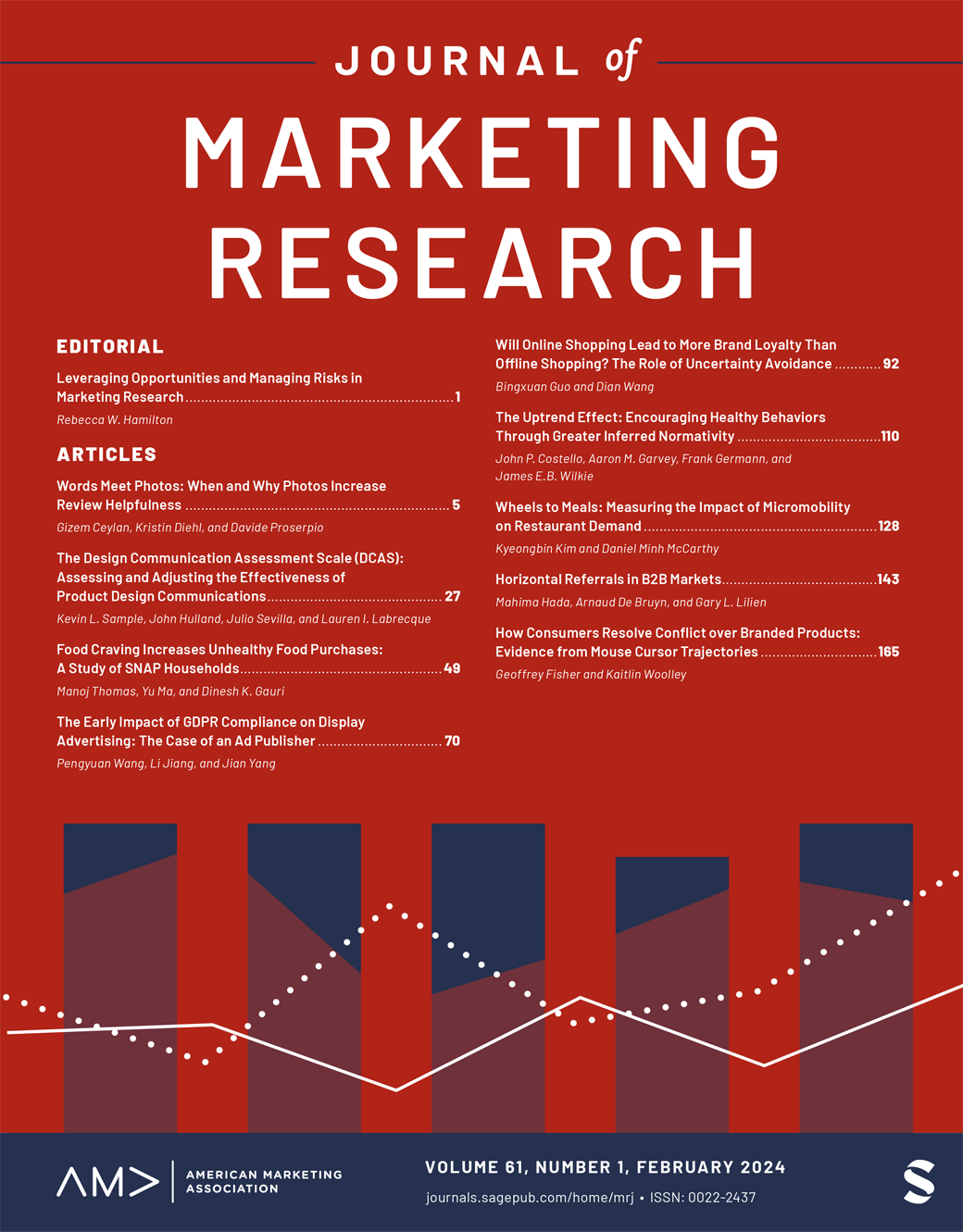EXPRESS: Driving Mobile App User Engagement through Gamification
IF 5.1
1区 管理学
Q1 BUSINESS
引用次数: 0
Abstract
Many mobile app providers offer their apps for free and base their business models on user engagement. However, declining app usage over time threatens the ability of apps to add business value. To keep users engaged, app providers use gamification, i.e., they use game elements (e.g., levels, points) in their non-game apps. Complementing traditional loyalty strategies that reward value-added activities (e.g., purchases) through value rewards, gamification rewards ongoing engagement through game elements. Thus, reward architectures of many apps have become hybrid, with value- and game-reward pursuit simultaneously driving engagement. However, it is unclear to what extent gamification helps to drive user engagement and add business value. To address this question, the authors study unique data from a gamified market research app comprising daily individual-level app usage observations of 18,952 users. The findings show that game rewards increase engagement significantly over and above value rewards, leading to a lift in business value, especially when users are in closer proximity to both types of rewards. However, the analysis also shows a dark side of gamification: when users enter a state of flow in the game, game engagement has a weaker effect on value-added engagement. The authors discuss implications for gamified reward architectures.快讯:通过游戏化提高移动应用程序用户的参与度
许多移动应用程序提供商免费提供应用程序,其商业模式以用户参与为基础。然而,随着时间的推移,应用程序的使用率不断下降,威胁到应用程序增加商业价值的能力。为了保持用户的参与度,应用程序提供商采用了游戏化手段,即在非游戏应用程序中使用游戏元素(如关卡、积分)。传统的忠诚度战略通过价值奖励来奖励增值活动(如购买),而游戏化则通过游戏元素来奖励用户的持续参与。因此,许多应用程序的奖励架构已成为混合架构,同时追求价值奖励和游戏奖励,从而推动参与度。然而,目前还不清楚游戏化在多大程度上有助于推动用户参与并增加商业价值。为了解决这个问题,作者研究了一款游戏化市场调研应用程序的独特数据,包括对 18,952 名用户的每日个人级应用程序使用观察。研究结果表明,与价值奖励相比,游戏奖励能显著提高用户参与度,从而提升商业价值,尤其是当用户更接近这两种类型的奖励时。然而,分析也显示了游戏化的阴暗面:当用户在游戏中进入流动状态时,游戏参与对增值参与的影响较弱。作者讨论了游戏化奖励架构的意义。
本文章由计算机程序翻译,如有差异,请以英文原文为准。
求助全文
约1分钟内获得全文
求助全文
来源期刊

Journal of Marketing Research
BUSINESS-
CiteScore
10.30
自引率
6.60%
发文量
79
期刊介绍:
JMR is written for those academics and practitioners of marketing research who need to be in the forefront of the profession and in possession of the industry"s cutting-edge information. JMR publishes articles representing the entire spectrum of research in marketing. The editorial content is peer-reviewed by an expert panel of leading academics. Articles address the concepts, methods, and applications of marketing research that present new techniques for solving marketing problems; contribute to marketing knowledge based on the use of experimental, descriptive, or analytical techniques; and review and comment on the developments and concepts in related fields that have a bearing on the research industry and its practices.
文献相关原料
| 公司名称 | 产品信息 | 采购帮参考价格 |
|---|
 求助内容:
求助内容: 应助结果提醒方式:
应助结果提醒方式:


